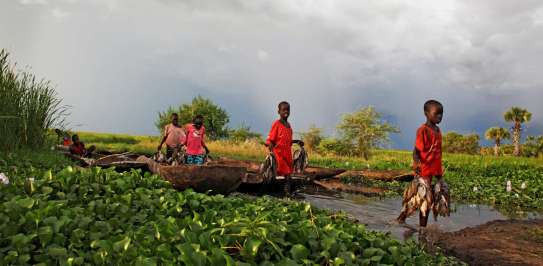Poor people, who have small or unreliable incomes and live in areas at risk of disasters, have the least means to cope when drought, floods or other climate-related emergencies happen.
When every day is a fresh struggle to earn an income and to feed your family, any unforeseen cost or need, such as healthcare, can be difficult to meet. Major emergencies, such as a drought wiping out an entire harvest, can be devastating.
We support poor people to be better able to protect themselves when disaster strikes or when times are tough, and to build diverse and reliable sources of income that are not as severely affected when disasters or unplanned needs arise.
Our approach
Through our resilience and climate programme we:
- Help people and their communities to identify possible risks to their livelihoods and put plans in place to protect their income, for example by having a number of different ways to earn money.
- Support people to stand up for their rights for support from their government during climate-related disasters and for the provision of essential services such as education.
- Help communities to prepare their farm lands, so that it can withstand drought, and put natural resource management in place around land, water, soil and forests to reduce hunger and poverty caused by drought and floods.
- Support small farmers to access information, credit and markets, so that they can build sustainable livelihoods, increase their income and create savings.
- Put in place plans for emergencies such as early warning systems, evacuation plans and natural flood defences.
Results
Our work on resilience has reached millions of people around the world.
- A four-year programme funded by the UK government helped more than more than 1.6 million people across 19 countries build their resilience by 2014/15.
- In Malawi, we have strengthened the resilience and reduced the vulnerability of approximately 77,000 households. In total, it has reached 423,000 people making them better prepared for potentially devastating effects of climate change.
